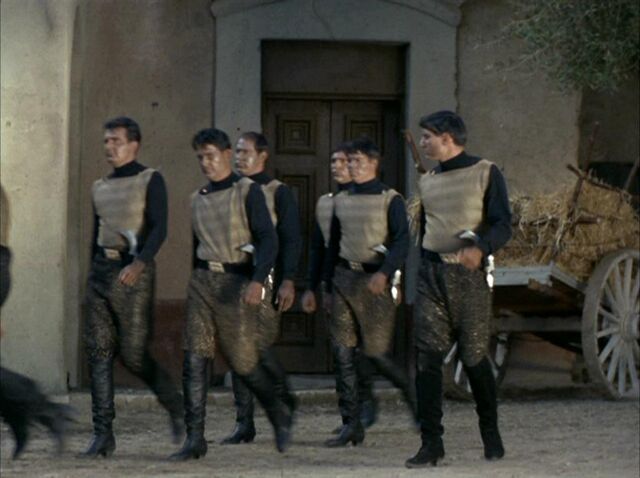Klingon honour may be a useful social institution, but the way Klingon society was presented in later Star Trek is 'hooey'.
From the other thread:
99% of the Klingons we see are either warriors or nobles (which are supposed to be the warriorest of warriors), so the sample is a little off. When I see farmers going "I farm with HONOR! Look at me HARVEST this bulb with my BATLETH. HONORABLY! For KAHLESS!" then we might have a point.
Even this is one dimensional - a society needs to diversify in order to function. Vikings were civilians when not engaged in war and trade. They fished, hunted, and farmed - trading furs, visiting brothels, crafting tools. When their chieftans saw that modern statehood and trade would earn money from taxation faster than from plunder - they adopted Christian institutions (out of a practical desire for trade and access to learning institutions, not any romantic idealism) and the institutions of medieval kingship. By the end of the 'Viking era' the Vikings weren't 'pagan barbarians' at all - most were Christians preying on other Christians - and half of them probably no longer even ethnic Scandanavians, but also including Scots, Irish, English and Slavs.

The Klingon state isn't populated by an eternal caste of soldiers, all raised in the Shaolin Temples of Kronos (that would be monumentally ridiculous, as the instinct of all animals is to lead the easiest life possible - and it takes a great deal of cultural propaganda to make people take on duties that are against their best interests). They probably have 'realists' who recognise class divisions, have a cynical view of their politicians, and don't give a shit about military service, as well as 'reluctant patriots' who see collaboration with the ruling state as their best chance of a good life -
already two vastly different viewpoints!
So presumably many of the 'warriors' we meet are engaged in a term of military service, and have lives beyond the Klingon Defence Force - some will be simple blue collar or white collar workers, or civil servants, or work in a Klingon hospital. Some might come from military families, but in real life, this does not necessarily entail fanaticism. They would probably be more like servicemen with a family history in the British armed forces - perhaps having built a good classical understanding of war, and that 'fearlessness' is stupid; service is about doing a professional duty in spite of fear. Dumb fanatics don't make good empire-holders - pragmatists do.

Take the example of Klingon armour to illustrate why later depictions of Klingon society are so stupid. Rationality wins wars. Armies are some of the most 'hard rationalist' of organisations. They will make their soldiers do things that might not be glamorous, if it improves the chances of winning and survival. A soldier might have to eat local insect wildlife, in order to survive in conditions where supply lines are poor. Religious dietary requirements and other romantic notions fly right out of the window. They wear practical fabrics, carry practical weapons, and don't do things for glamour. If a Klingon commander tells troops to 'cook' their gagh in order to release more useful protein for digestion, they will have to do it. If they are issued standard bars of field rations, that contain some unpalatable formula, they must eat them.


The Romans dug miles of defences around their camps. When besieging a settlement in Gaul, they encircled in in a wooden palisade. So warfare, in the most organised military machine the world had seen, was as much about digging latrines and infrastructure as actual combat. That is why they won. Discipline/coordination triumphs over zealotry/fanaticism. The Battle of Teutoberg forest only succeeded because it was a surprise attack - the romantic hollywood view of barbarians as unstoppable warriors who cut down ten people for every one casualty is poisonous nonsense. If that were true, the casualty rates in wars would be vastly different - the US Army suffered far less deaths than Imperial Japan in WW2.

Thus the Klingons from TOS, with their practical uniforms, rationalist behavior, make more sense than the barbarians presented in late-TNG, DS9 and VOY. I rationalise this ridiculous change as having been a social regression - a repealing of the 'Klingon enlightenment' - a Klingon anti-renaissance in which social institutions regressed after Praxis's explosion ruined society, and the Gorkonites had to rebuild. Where perhaps during TOS, the Klingons had adopted the fascist idea of 'class collaboration' to resolve their class war differences, the old bourgeoisie re-siezed power in a corrupt post-Gorkon empire.







